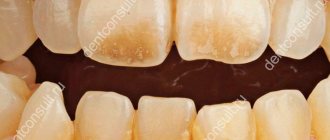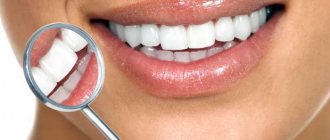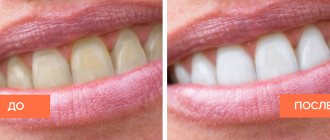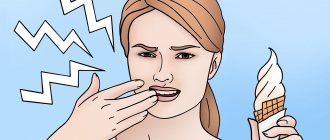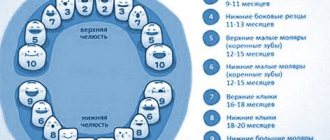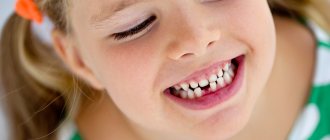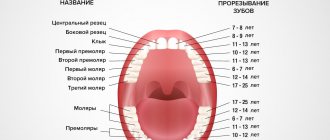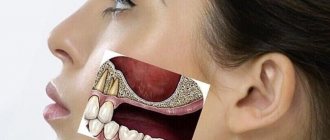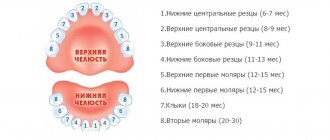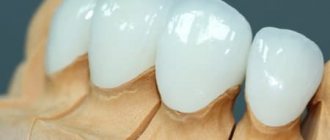Regular oral hygiene plays an important role in maintaining dental health and preventing various diseases.
Almost everyone knows about how dental hygiene affects the general condition of the body. And in fact, anyone can debate this topic.
But, nevertheless, the undeniable fact is that the general health of a person largely depends on the health of teeth and gums. This has been confirmed by various scientific medical studies. Inflammatory processes on the teeth and gums, as well as heavy plaque and other deposits lead to an increase in the number of pathogenic microbes that can provoke a large number of diseases. Heart and vascular diseases, the development of diabetes, complications during pregnancy and premature birth - these and other health problems can arise due to small microbes on the teeth.
As medical dental practice shows, caries, gingivitis and tartar almost always occur due to improper oral hygiene. Having heard the phrase “you are brushing your teeth incorrectly” from a dentist, most patients are very surprised and begin to give other reasons for the development of their diseases, be it heredity, sensitive enamel or crowded teeth.
What is the right and wrong way to care for your teeth?
There are research results that clearly show that 99%
Problems of teeth and gums arise from improper care.
And there is data that shows the opposite picture, as in Switzerland, where regular oral hygiene is instilled almost from infancy. Only 3% of the population suffers from caries. Children are taught to brush their teeth correctly at an early age, special lessons are given at school, and they need to visit the dentist every six months.
As they say, feel the difference.
The formula for dental health looks like this:
proper home care + regular visits to the dentist = healthy teeth and gums
According to statistics, in Russia only 30% of the population brushes their teeth correctly; the rest, alas, do not do this for various reasons. Most often this is due to the inability to brush your teeth properly and a lax attitude towards your health.
Why do you need to brush your teeth?
Why do you need to brush your teeth several times every day?
The oral cavity is an ideal place for the rapid reproduction and activity of pathogenic bacteria. Here, optimal conditions are created for various types of microorganisms:
- Temperature close to 37 °C.
- High humidity.
- Availability of a food source (leftover food).
- Lack of sunlight, which is a source of ultraviolet radiation that kills harmful bacteria.
This is why microbes multiply quickly in the cavity and mouth and feel very comfortable there. Among the representatives of microflora there are both beneficial microorganisms and pathogenic ones, which, as a result of active division, can provoke the development of various serious diseases, such as stomatitis and caries. Since thorough brushing of teeth eliminates a significant part of these microorganisms, their negative effects are minimized. For this reason, you need to brush your teeth regularly and do it correctly.
How many minutes should you brush your teeth?
If you ask a dentist how long you need to brush your teeth, he will definitely answer: “to clean the oral cavity well, you need to brush your teeth for at least three minutes.” That is, for each half of the upper and lower jaw you need to allocate at least 45 seconds. Unfortunately, you don’t always have a couple of extra seconds, especially when you have to run to work in the morning and want to go to bed early in the evening. Poor cleaning of the oral cavity leads to the fact that plaque and microorganisms are not removed well enough. As a result, various problems begin to appear, the solution of which will require several days or months, as well as spending your finances. Therefore, whenever you need to brush your teeth, it is better to be patient and devote enough time to this important hygiene procedure.
Proper Teeth Brushing Technique
The dentition contains many so-called hard-to-reach areas in which food debris collects and plaque accumulates. To remove it as well as possible, you need to brush your teeth properly. The following rules can help with this:
- Toothpaste must be applied in sufficient quantities, but without fanaticism - the length of the strip should be approximately one centimeter.
- Using swiping movements from the gums, we clean the chewing teeth from the cheek side.
- We brush the front teeth in a circular motion and from side to side.
- We perform 20 movements on each section and then move on to the next one.
Using a toothbrush, you should thoroughly clean your teeth on all sides, not forgetting your tongue, because bacterial plaque accumulates on it too. Finally, rinse your mouth with clean water.
Storage after opening the tube
Storing the paste in the bathroom will be more reliable if you place it vertically, with the tip of the tube down. This minimizes the interaction between the contents of the tube and the air. This storage method will somewhat slow down the oxidation process.
- It is more correct to store tubes of paste in a special closed cabinet designed for the bathroom.
- Do not forget to screw the tube cap tightly after each use of the paste, otherwise the harmful effects of oxygen on the cleaning product cannot be avoided. And if, before using the product, it turns out that the tube was not closed tightly, it is better to squeeze out the upper part and throw it away.
- After opening the tube, the composition should not be stored longer than 2 - 6 months, and for children's paste this time is reduced to 1 month.
- Most often, manufacturers indicate expiration dates for toothpastes after opening. To make it easier to find, there is an image of an open jar on the product box.
How many times a day should you brush your teeth?
Should I brush my teeth in the morning? When should I brush my teeth before or after breakfast?
Dentists indicate the need to brush your teeth at least 2 times a day - in the morning after sleep before breakfast and in the evening after meals, i.e. for the night. It is most optimal to carry out hygiene procedures after each meal, especially if a person has dentures, braces or other orthodontic structures. In such cases, a person is at risk of developing dental diseases; accordingly, special attention should be paid to oral care. Of course, brushing your teeth after every meal can be difficult, so rinsing your mouth with clean water or using chewing gum is acceptable.
Some people may have a natural question: is it harmful to brush your teeth frequently? If you choose the right hygiene products and follow the cleaning technique, then doing this is not only not harmful, but also useful. The cleaner your mouth is, the less likely you are to develop various dental problems.
At what age should a child brush his teeth?
This question concerns all young fathers and mothers. What do experts say about this? Should children have their teeth brushed? Dentists offer two options:
- Children should begin oral hygiene procedures even before the first tooth erupts. Microorganisms accumulate both on the surface of the enamel and on the mucous membrane of the cheeks, gums, palate, and tongue. Therefore, young children, like adults, need hygiene. Cleaning the oral cavity should begin at 3-4 months of age. For this purpose, a special children's silicone brush is used, which is placed on the finger.
- Children need to brush their teeth after teething. This process is individual for each child, so it is difficult to give exact dates. There is no need to try to brush the tooth at the moment of its eruption; you need to wait until it is completely finished so that the child does not get hurt. After this, you can purchase a children's brush, which has bristles made of silicone and has a special stop. You need to start brushing your teeth without toothpaste.
Since there is no clear answer to the question posed, each situation must be approached individually. To begin, parents should consult with their pediatrician and pediatric dentist. Specialists will help you choose the optimal time to start oral hygiene procedures.
Oral hygiene in children
There is a tradition of giving a silver spoon for the first tooth that erupts. We would add a toothbrush to this tradition. We recommend that you teach your child how to brush their teeth in a playful way from the moment the first tooth appears.
Doctors note that up to the age of 10, it is necessary to help children brush their teeth, since at a younger age children find it boring and do not understand why they should do it at all. There are also special liquids or tablets that allow you to check the remaining plaque on your teeth using contrast staining.
There are modern toothbrushes that can be synchronized with a tablet, then brushing your teeth turns into a game.
It is important to remember that the sooner you start brushing your child’s teeth properly, the healthier his teeth will be!
What types of toothbrushes and toothpastes are there?
In any store or pharmacy you can see several varieties of toothbrushes and toothpastes. Such diversity was not invented without reason, because these funds should be selected taking into account the characteristics of a particular person.
Toothbrushes differ in their degree of hardness:
- The soft bristles do not injure the gums and are therefore suitable for people with increased sensitivity and patients with periodontal disease.
- Hard brushes provide good plaque removal, but can damage your gums.
- Medium-hard bristles are universal and suitable for most people.
If you don’t know which brush you need, your dentist will help you choose it after he conducts an examination.
What toothpaste should you use to make your teeth white? How do different pastes differ from each other?
Toothpastes may contain abrasives (help remove plaque and slightly whiten the enamel), fluoride, anti-inflammatory components and other ingredients. Therefore, it is necessary to choose a toothpaste based on the oral condition of a particular person. For example, various pastes can be used to eliminate bleeding gums, their inflammation, or to reduce sensitivity. If you have such problems, you need to select a certain type of toothpaste that your dentist can recommend.
Proper storage conditions
For unopened packaging, the rules are specified in GOST 7983-99.
Standard requirements for the conditions for keeping toothpaste include a temperature range from 0 to +25°C, protection from direct sunlight and location away from heating devices.
It is not recommended to store tubes that you will not use in the near future in the bathroom.
The tube cap should be tightly closed to avoid unnecessary contact with air, and to minimize it, it is recommended that the tube be kept in a vertical position with the cap down.
If these conditions are met, the shelf life for a sealed tube will be from two to three years .
In our article you will find information about decoding product barcodes.
By unsealing the tube cap, you can count on maintaining the characteristics of the paste for two to six months , and for children - no more than one month.
Additional hygiene products
Experts recommend not limiting yourself to a regular toothbrush and toothpaste and using additional products daily (see photo) to maintain proper oral cleanliness. Among them are:
Dental floss (floss). Necessary to clean the spaces between teeth from plaque. Flosses are made from synthetic materials or silk. Dental floss can be regular or waxed. In the first case, it will be divided into several threads when brushing your teeth. They clean teeth better due to the larger contact area. Wax-coated threads do not separate and are able to easily penetrate between the contact surfaces of the teeth. They are recommended for children, as well as people who are just starting to use this hygiene product. In addition, flosses differ in cross-section, which can be round, ribbon, flat or voluminous. This variety allows you to individually choose dental floss based on the anatomical structure of each person’s dentition.
Irrigator. It is a special device that creates a thin stream of water under high pressure. This pressure is selected so as to effectively clean the surface of the teeth from plaque without injuring the soft tissues. On the contrary, the irrigator has a massage effect on the gums, relieves inflammation and eliminates bleeding. The device is indispensable for people who have braces or other bulky dental structures that are difficult to clean.
- Mouth rinses. Some people believe that the only purpose of mouthwashes is to freshen your breath. In fact, these hygiene products have a much wider spectrum of action. They may contain antiseptic and anti-inflammatory components, minerals, agents that help relieve bleeding gums, etc. Based on the set of these active substances, all rinses are divided into hygienic and therapeutic and prophylactic.
- Brushes and tongue scrapers. They help remove plaque and microorganisms from the surface of the tongue. For high-quality and complete oral hygiene, it must also be cleaned regularly. This procedure will be of particular benefit to patients who smoke, as well as those suffering from diseases of the upper gastrointestinal tract, accompanied by bad breath.
- Cleaners. These devices are designed both for cleaning interdental spaces and can be used for cleaning fixed dentures, orthodontic appliances, etc. They can be made in the shape of a cylinder or a cone. In addition, they differ in size. The service life of one such product is about 5 days.
- Dentifrice. It is a good preventative against caries. It has a polishing and whitening effect, helping to remove stains from tea, coffee, and cigarettes. The question is often asked: is it harmful to brush your teeth with tooth powder? There is only one answer: no, it is not harmful. The decline in its popularity occurred mainly as a result of a marketing policy focusing on the promotion of oral hygiene products (pastes, rinses) of large international companies.
- Chewing gum. It is an excellent solution for mechanical removal of food residues. At the same time, you need to know that you can chew gum only after eating for 10 minutes, no more. You also need to make sure that there is no sugar in its composition. Chewing gum should not be used by patients with phenylketonuria, children with baby teeth, during orthodontic treatment, pregnant women and nursing mothers.
Using a regular brush in combination with these products will allow you to better clean the oral cavity of plaque. For an unprepared person, such an abundance of hygiene products can lead to difficulties in choosing the most suitable ones. In such situations, it is necessary to contact a dentist who will select everything necessary for high-quality cleaning of the oral cavity, taking into account the characteristics of a particular patient.
What do GOSTs say?
The regulatory document establishing toothpaste standards in the territory of the countries of the Customs Union is GOST 7983-99 “Toothpastes. General technical conditions".
According to it, the shelf life for each specific item is set by the manufacturer.
GOST specifies the necessary storage conditions for toothpaste: air temperature from 0 to 25°C, exposure to direct sunlight and location near heating devices is not allowed.
The regulatory document establishing toothpaste standards in the territory of the countries of the Customs Union is GOST 7983-99 “Toothpastes. General technical conditions".
What happens if you don't brush your teeth for a long time?
As noted earlier, pathogenic microorganisms feel quite comfortable in the oral cavity. Together with food particles, they populate the entire surface of the oral cavity (enamel, mucous membranes). As a result, over time, so-called dental plaque forms. It turns out to be a vicious circle when bacteria first select comfortable conditions for their existence, and then have a negative impact on the environment by releasing waste products. Thus, toxic metabolic products cause both destruction of tooth enamel and inflammation of the mucous membranes, for example, gingivitis and a more serious disease - periodontitis (can be a complication of gingivitis). This pathology is characterized by the formation of pathological pockets between the tooth and gum tissue. They are also the entrance gates for infection that affects the tooth root and ligamentous apparatus. Severe periodontitis is characterized by exposure of the neck of the tooth, loosening and loss of teeth. Treatment of such cases is only surgical and requires a lot of time.
The golden rule of medicine says: it is easier to prevent any disease than to treat it later. This statement also applies to dentistry. High-quality and regular teeth cleaning will help you avoid many problems that will not only require time to eliminate, but will also be accompanied by significant material costs.

